Abstract
In treatment of failure in ankle joint replacement therapy, talar avascular necrosis with massive bone defect, talus fracture with severe comminution and bone defect and ankle dislocation, treatment of large bone defects is considerably important for ankle joint stability and union, therefore, the choice of treatment for large bone defects is use of femoral head or iliac crest bone graft and rigid internal fixation. Because first generation total ankle arthroplasty performed for the first time using a cemented fixation technique requires a large amount of bone resection during re-surgery and there is some possibility of a larger bone defect after removal of implants, in cases where prosthesis for the defect is needed, performance of palliative femoral head or iliac crest bone graft and rigid internal fixation can be difficult. We report on a case of a 48-year-old woman who had experienced ankle pain for 25 years since undergoing total ankle arthroplasty. Because the patient had little ankle motion and rigid soft tissue despite a large bone defect caused by aseptic loosening, a good outcome was obtained only for the femoral cancellous bone graft using allo femoral head without internal fixation.
References
1. Bruggeman NB, Kitaoka HB. Arthrodesis after failed total ankle arthroplasty. Tech Foot Ankle Surg. 2002; 1:60–8.

2. Groth HE, Fitch HF. Salvage procedures for complications of total ankle arthroplasty. Clin Orthop Relat Res. 1987; 224:244–50.

3. Lord G, Marotte JH. Total ankle prosthesis. Technic and 1st results. Apropos of 12 cases. Rev Chir Orthop Reparatrice Appar Mot. 1973; 59:139–51.
4. Kitaoka HB, Patzer GL. Clinical results of the Mayo total ankle arthroplasty. J Bone Joint Surg Am. 1996; 78:1658–64.

5. Berkowitz MJ, Sanders RW, Walling AK. Salvage arthrodesis after failed ankle replacement: surgical decision making. Foot Ankle Clin. 2012; 17:725–40.
6. Pelton K, Hofer JK, Thordarson DB. Tibiotalocalcaneal arthrodesis using a dynamically locked retrograde intramedullary nail. Foot Ankle Int. 2006; 27:759–63.

7. Jeng CL, Campbell JT, Tang EY, Cerrato RA, Myerson MS. Tibiotalocalcaneal arthrodesis with bulk femoral head allograft for salvage of large defects in the ankle. Foot Ankle Int. 2013; 34:1256–66.

8. Schill S. Ankle arthrodesis with interposition graft as a salvage procedure after failed total ankle replacement. Oper Orthop Traumatol. 2007; 19:547–60.
Figure 1.
Preoperative ankle anteroposterior view (A) and lateral view (B) show bony destruction with fracture of distal tibia, large bone defect of ankle joint and implant loosening around talar component.
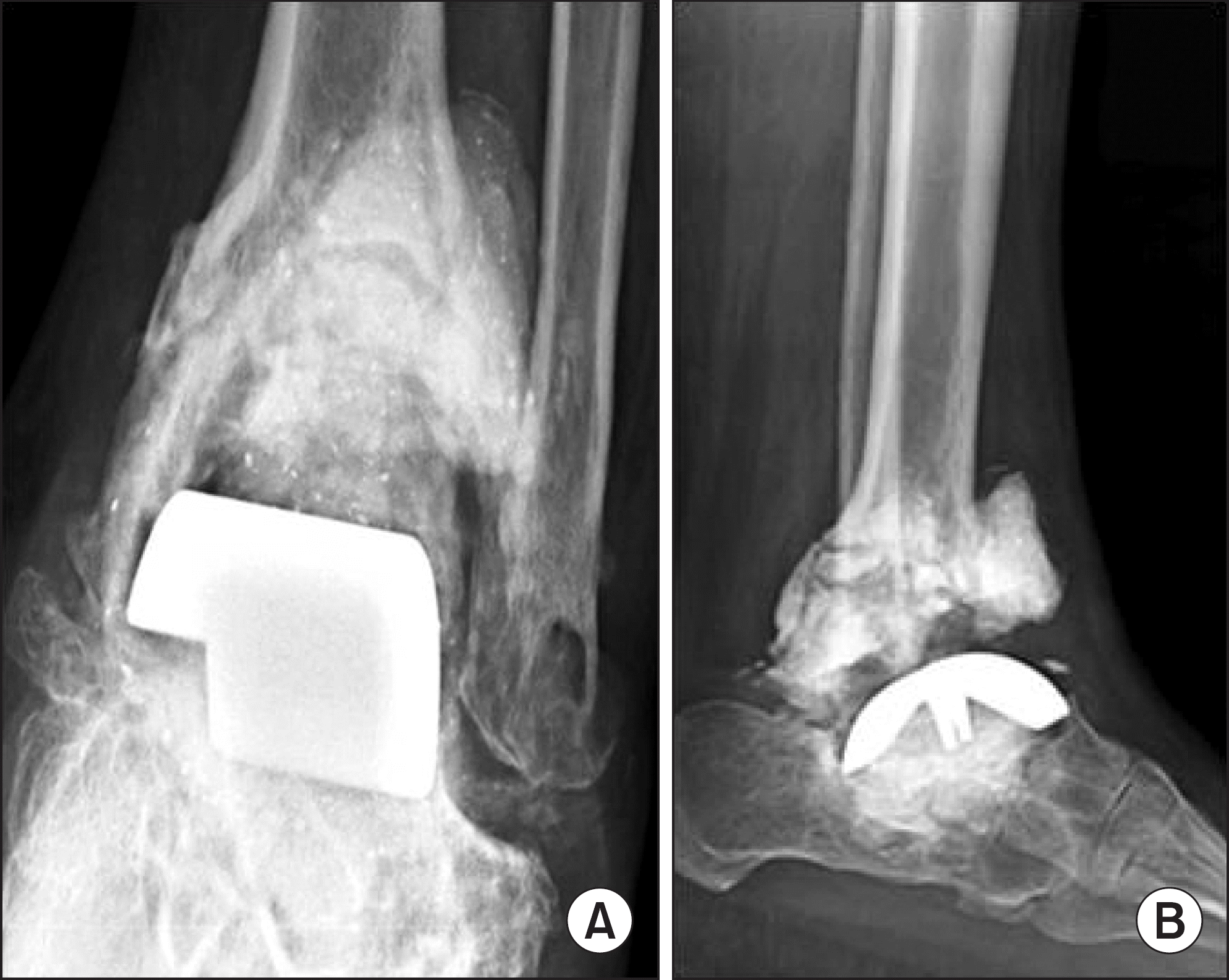
Figure 2.
Intraoperative photograph shows the separated implants, bone fragments and cement matarials.
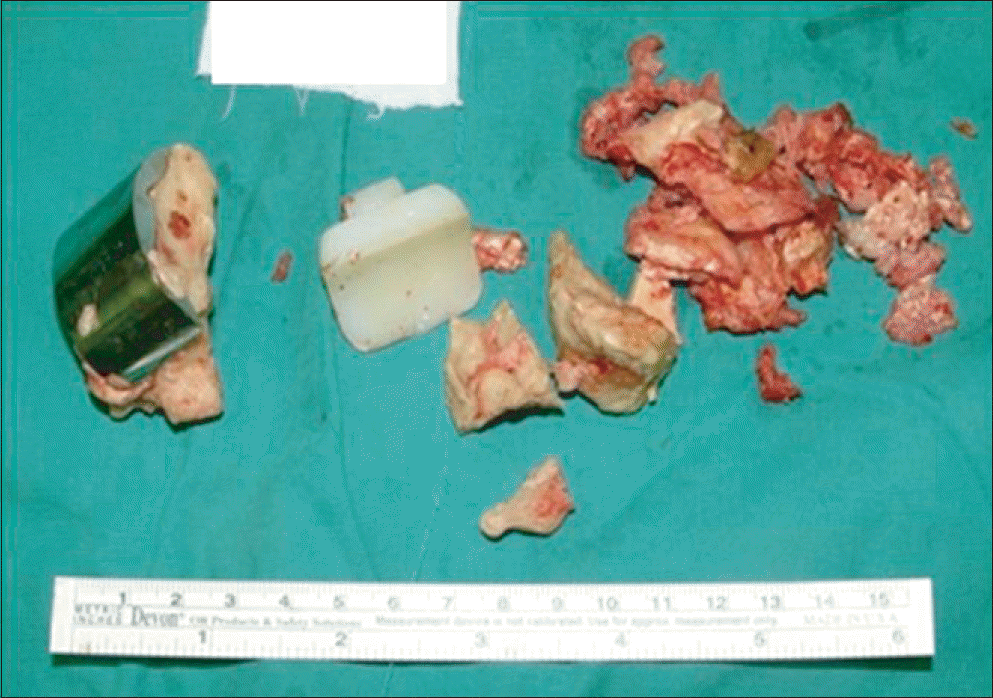
Figure 3.
Immediate postoperative ankle anteroposterior view (A) and lateral view (B) show the results of salvage procedure with cancellous bone grafting using allo-femoral head.
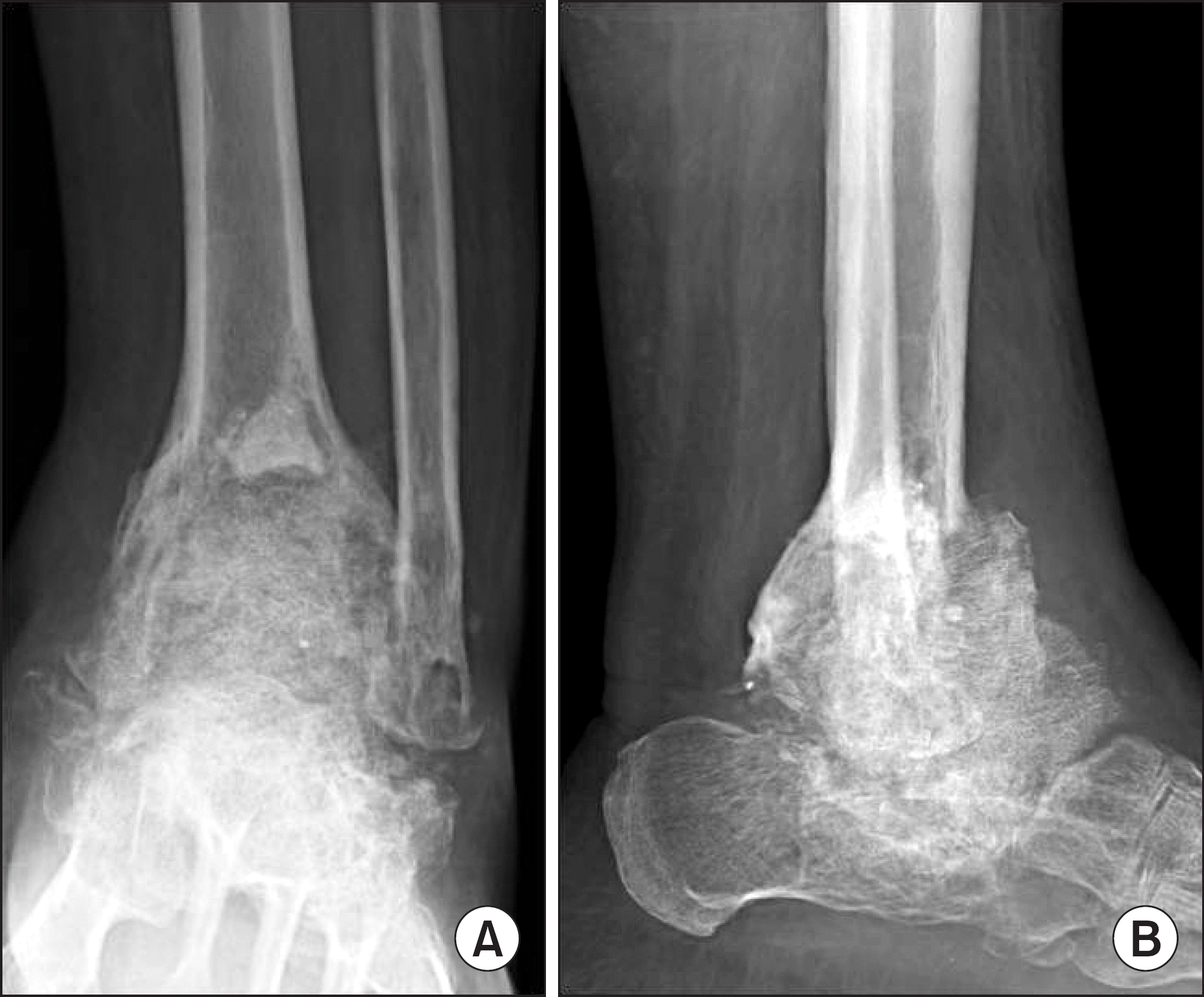




 PDF
PDF ePub
ePub Citation
Citation Print
Print


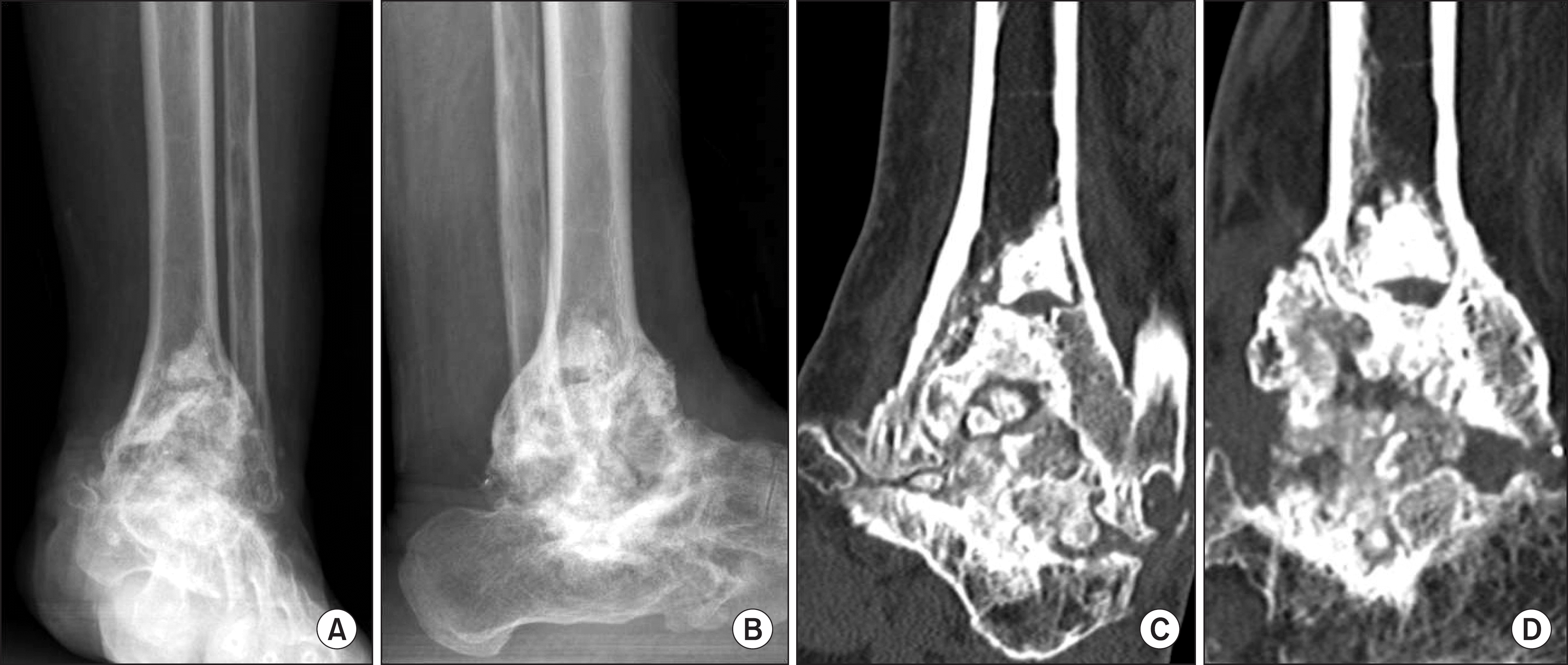
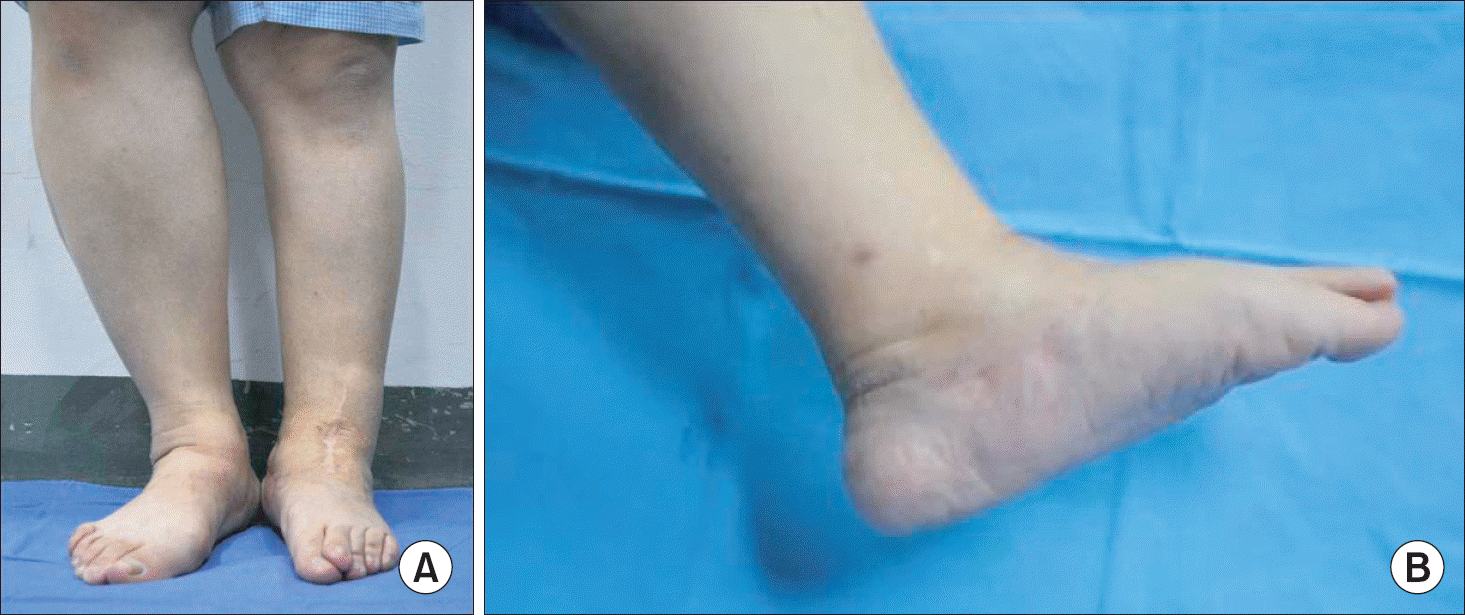
 XML Download
XML Download